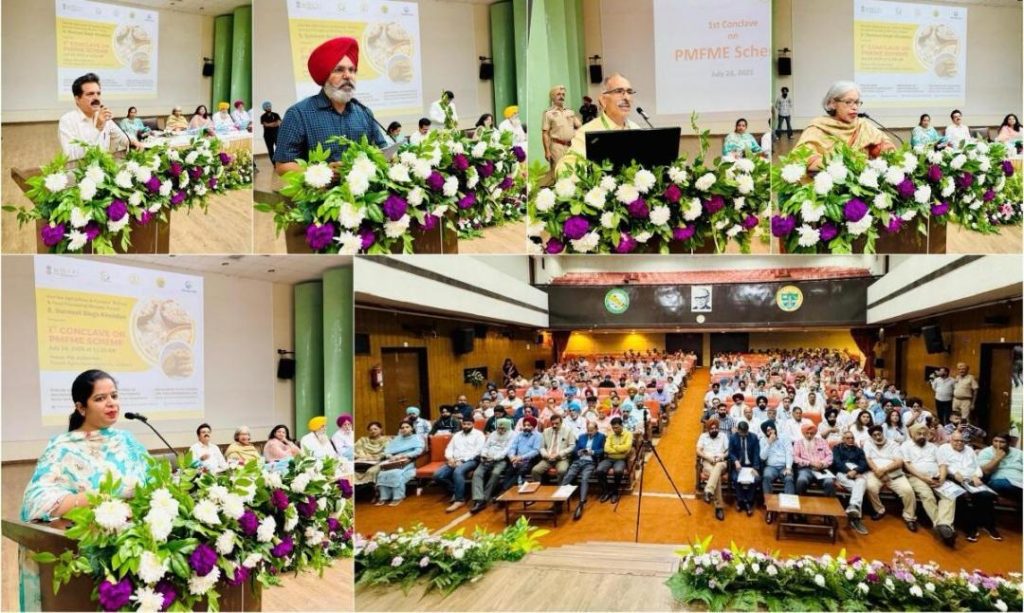
Punjab’s Microfood Boom: Small Units, Big Impact
In recent years, the state of Punjab has witnessed a remarkable surge in microfood enterprises, revolutionizing the way local farmers and entrepreneurs approach food production and marketing. With the support of government initiatives and innovative local solutions, these small-scale businesses are not only adding value to farm produce but also creating rural jobs and empowering women-led entrepreneurship.
One such success story is Gurpreet Kaur’s pickle unit, which has transformed her life and that of her community. With an initial investment of just ₹40,000, Gurpreet’s pickle unit now generates a staggering ₹3 lakh monthly. Her journey is a testament to the potential of grassroots ventures to drive rural transformation and self-reliance.
The Rise of Microfood Enterprises
Microfood enterprises, also known as agri-micro-enterprises, are small-scale businesses that process and add value to agricultural produce. These units are usually run by small-scale farmers, women, and youth, who leverage local resources and innovative techniques to create new products and markets.
Punjab, with its rich agricultural heritage and fertile soil, has become a hotbed for microfood entrepreneurship. The state’s unique climate and soil conditions make it an ideal location for a wide range of crops, from wheat and rice to fruits and vegetables.
Government Support: The PMFME Scheme
One of the key factors driving the growth of microfood enterprises in Punjab is the government’s support through initiatives like the Pradhan Mantri Micro Food Processing Enterprise (PMFME) scheme. Launched in 2020, the PMFME scheme aims to support small-scale food processing units by providing them with financial assistance, training, and marketing support.
Under the scheme, eligible entrepreneurs can receive a loan of up to ₹10 lakh to set up or expand their microfood enterprises. The scheme also provides training and mentorship to help entrepreneurs develop new products, processes, and marketing strategies.
Case Studies: Successful Microfood Enterprises in Punjab
Gurpreet Kaur’s pickle unit is just one example of the many successful microfood enterprises in Punjab. Here are a few more case studies that illustrate the impact of microfood entrepreneurship in the state:
- Dairy Entrepreneurship: In the village of Kotli Kalan, a group of women have come together to form a dairy cooperative, producing ghee, butter, and other dairy products. With the support of the PMFME scheme, the cooperative has been able to expand its operations and increase its revenue.
- Fruit Processing: In the town of Phagwara, a young entrepreneur named Rakesh has set up a fruit processing unit, producing jams, jellies, and other fruit-based products. With a loan of ₹5 lakh from the PMFME scheme, Rakesh has been able to scale up his operations and supply his products to local markets.
- Spice Production: In the village of Bhogpur, a group of farmers have formed a cooperative to produce a range of spices, including turmeric, coriander, and cumin. With the support of the PMFME scheme, the cooperative has been able to develop new products and increase its revenue.
Rural Jobs and Women-Led Entrepreneurship
One of the most significant impacts of microfood entrepreneurship in Punjab is the creation of rural jobs and the empowerment of women-led entrepreneurship.
Many microfood enterprises in Punjab are run by women, who are often the primary farmers and producers of food products. With the support of the PMFME scheme and other government initiatives, women entrepreneurs are able to develop new skills, access markets, and increase their income.
In addition to creating jobs and empowering women, microfood entrepreneurship is also helping to revitalize rural communities in Punjab. By providing a new source of income and employment, microfood enterprises are helping to reduce rural migration and promote sustainable development.
Conclusion
Punjab’s microfood boom is a remarkable example of how small-scale entrepreneurship can drive rural transformation and self-reliance. With the support of government initiatives like the PMFME scheme, local innovators and entrepreneurs are able to develop new products, processes, and markets, creating jobs and empowering women-led entrepreneurship.
As the state continues to invest in microfood entrepreneurship, it is likely that we will see even more success stories like Gurpreet Kaur’s pickle unit. With its rich agricultural heritage, innovative entrepreneurs, and government support, Punjab is well-positioned to become a leader in India’s microfood sector.






